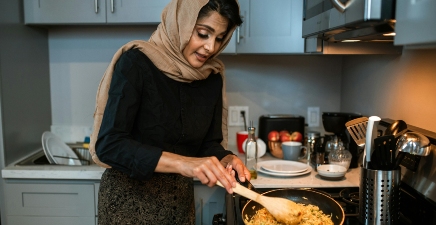A challenging journey
All my attempts to manage my diabetes up until this point were – at best – half-hearted. It was after I saw how erratic my glucose levels were that I knew I wanted to put my diabetes into remission. I had a fundamental change in mindset, and my family and friends were incredibly supportive.
I embarked on a journey that saw massive changes to my eating habits, cutting the majority of sugar and carbs from my diet. I stopped eating bread, pasta, fruit, and many other variants of my favourite foods.
In a way, it was really challenging and super restrictive, but it had dramatic results on my HbA1c – it dropped to 33mmol/mol over the course of four months. My weight dropped further to just shy of 14 stone, which I now maintain.
"There is no two ways about it – my approach to self-remission was challenging and unique to me. Everyone’s journey to remission is different, and ultimately, it’s really important that they speak with their healthcare team about their individual goals and what’s achievable."
My game plan was to achieve a HbA1c below 41 and then transition to a long-term, more sustainable diet for myself.
I continue to manage my diabetes – or now remission – as a ‘new normal’ and have reintroduced more complex carbohydrates, fruits, and ‘treats’ into my diet. Now I am truly thinking about what I’m eating and drinking and considering the effect it may have on my glucose levels and overall health.
I also invested in an exercise bench, adjustable dumbbells, and weight plates, and have set a daily exercise regimen using these pieces of equipment. I have jokingly said that I want to look like Christian Bale in his Batman days by Christmas 2025! While I might never achieve that, at least I have focus.






